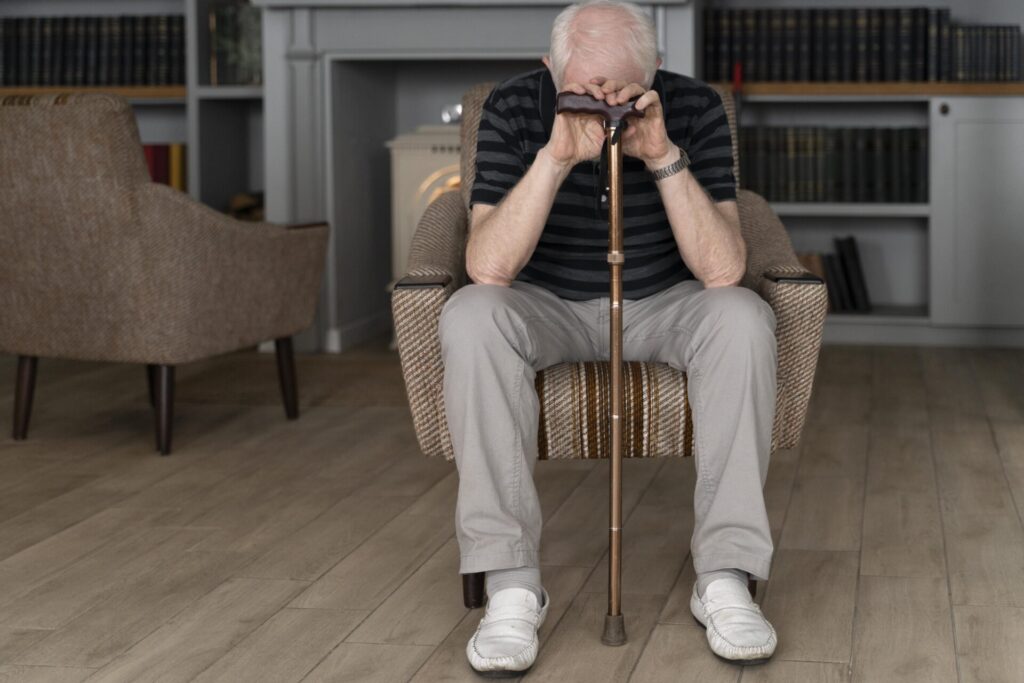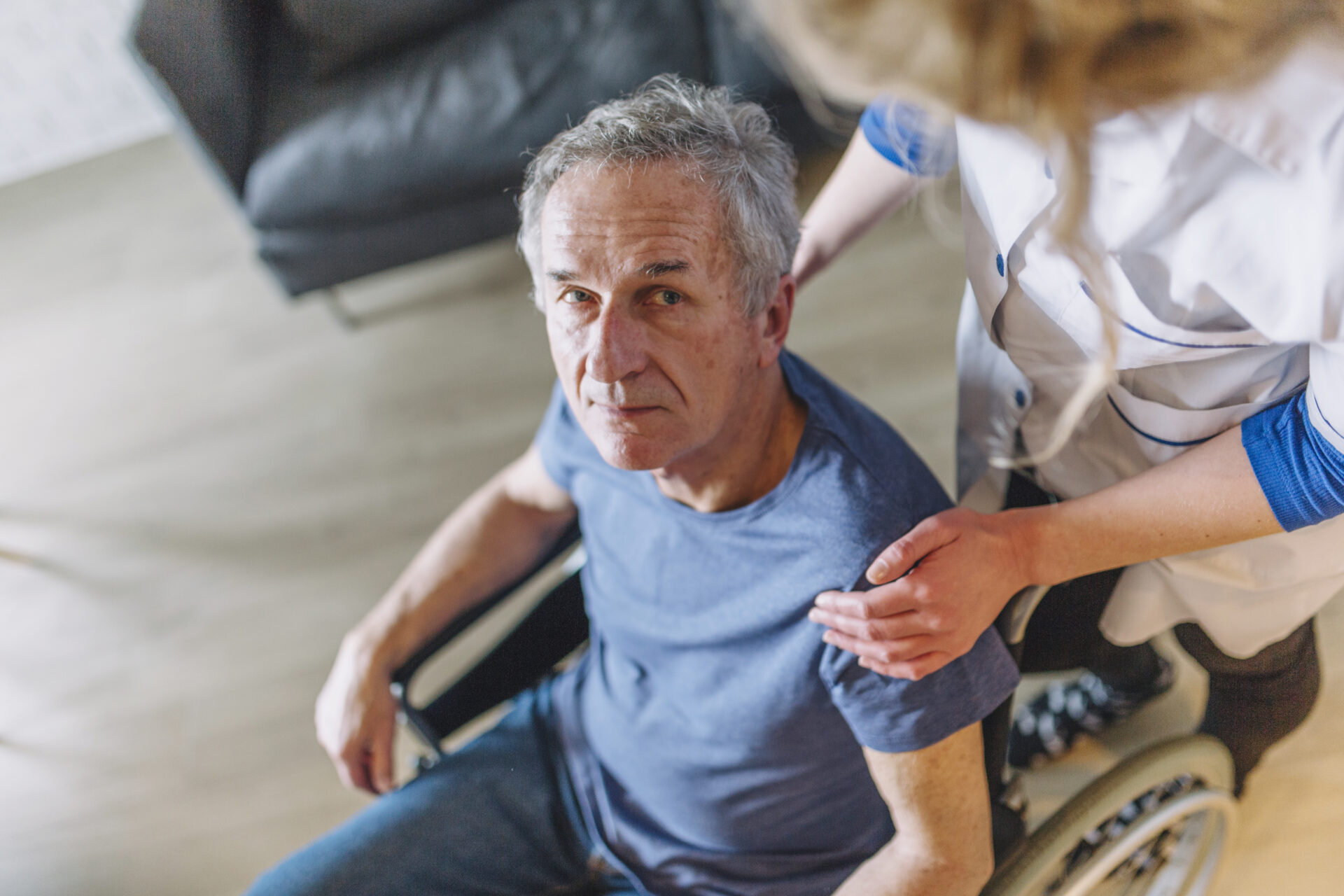Recognizing the Signs of Physical Elder Abuse
Contents
- 1 Recognizing the Signs of Physical Elder Abuse
- 1.1 Introduction:
- 1.2 Understanding Physical Elder Abuse:
- 1.2.1 1. Unexplained Injuries:
- 1.2.2 2. Emotional and Behavioral Changes:
- 1.2.3 3. Fear or Apprehension:
- 1.2.4 4. Unexplained Weight Loss or Malnutrition:
- 1.2.5 5. Dehydration:
- 1.2.6 6. Bedsores (Pressure Ulcers):
- 1.2.7 7. Poor Hygiene:
- 1.2.8 8. Medication Mismanagement:
- 1.2.9 9. Financial Exploitation:
- 1.2.10 10. Isolation:
- 1.3 Conclusion:
Read DISCLAIMER
Discover the warning signs of physical elder abuse and learn how to protect your elderly loved ones. This informative article sheds light on recognizing and addressing this concerning issue.
Introduction:
The care of the elderly is a shared obligation in our society since they are treasured members of it. Sadly, physical elder abuse is a frightening reality that many elders face around the globe. It is essential for us to be aware of the symptoms and know how to spot them because it is frequently a hidden issue that goes undiagnosed or ignored. In order to equip readers with the knowledge they need to defend senior family members and friends, this article will examine the warning indications of physical elder abuse.

Understanding Physical Elder Abuse:
The intentional infliction of bodily pain or injury onto an older person is referred to as physical elder abuse. Depending on the circumstance, this abuse may involve beating, slapping, shoving, or the use of shackles. It may happen at home, in nursing homes, or in institutions for assisted living, among other places. Understanding these symptoms is crucial because it enables us to respond and offer assistance when required.
1. Unexplained Injuries:
Unaccounted-for injuries are one of the most obvious indications of physical elder abuse. It’s a big red signal if you see bruises, wounds, burns, or fractures that aren’t related to falls or accidents. Keep an eye out for where and how frequently these injuries occur. Injuries to delicate regions, such as the face, neck, or genitalia, should be cause for worry.
2. Emotional and Behavioral Changes:
Elderly victims of physical abuse frequently experience emotional suffering. It can be a sign of abuse if your loved one suddenly starts acting withdrawn, nervous, or sad. They could act differently than usual, showing signs of fearfulness, impatience, or losing interest in past interests.
3. Fear or Apprehension:
When your loved one is with a certain caregiver or member of the family, keep an eye out for any indications of anxiety or worry. You should be concerned if they act uneasy or afraid around someone who is supposed to be caring for them. Elderly people should feel secure and respected in the presence of their caretakers.
4. Unexplained Weight Loss or Malnutrition:
Another type of elder abuse is neglect, which occurs when caretakers don’t offer the elderly the required care, including diet. Consider negligent therapy if you see considerable weight loss, frailty, or indications of starvation. Malnutrition can aggravate pre-existing medical conditions and cause new difficulties.
5. Dehydration:
Elderly people frequently experience dehydration, but physical abuse or neglect can make it worse. Watch for any symptoms of mistreatment, such as dry lips, sunken eyes, black urine, or disorientation. In order to maintain overall health and wellbeing, proper hydration is crucial.
6. Bedsores (Pressure Ulcers):
When an aged person is kept in one position for a lengthy period of time without adequate care, bedsores, also known as pressure ulcers, can form. Caretakers who are careless could not offer the essential attention and repositioning to stop bedsores. Bedsores should be taken seriously since they may be a sign of neglect.
7. Poor Hygiene:
Hygiene issues can sometimes be a sign of neglect. Your older family member may not be getting the care they need and deserve if they seem untidy, have filthy clothes, unclean hair, or have poor personal hygiene. For one to be healthy and respectable, proper cleanliness is essential.
8. Medication Mismanagement:
Elderly patients with medical issues need proper drug management. It may be a sign of abuse or neglect if you learn that your loved one’s drugs are not being given to them properly. Make careful to provide drugs in accordance with the doctor’s directions.
9. Financial Exploitation:
Elder abuse does not simply take the form of physical assault. Some people could use senior family members’ financial resources for their own financial gain. Watch out for unexpected or unapproved withdrawals, alterations to bank papers, and missing assets. As crucial as maintaining their physical health is safeguarding their financial assets.
10. Isolation:
Abuse caregivers frequently employ isolation as a means of control over their elderly victims. It can be a symptom of abuse if you see that your loved one is being isolated from friends and family or isn’t permitted visitors. Their mental and emotional well-being may suffer from social isolation.
Taking Charge:
It’s critical to intervene quickly if you believe a loved one is a victim of physical elder abuse. You can take the following actions:
1. Discuss with your loved one: Have a private discussion with your loved one and convey your worries in a sympathetic and non-aggressive way. Assure them of your support by saying so.
2. Document alterations and injuries Take pictures of any evident damage or indications of neglect, and make thorough notes. Keep track of the times that these things happen.
3. Contact Authorities: For assistance and support, get in touch with your local law enforcement, adult protective services, or elder abuse hotlines. They can help resolve the matter by offering helpful resources and support.
4. Provide Emotional Support: Give your loved one emotional support at all times. Elder abuse can be traumatizing, therefore they may require your support and care.
5. Take Legal Action Into Consideration In extreme circumstances, legal action may be required to protect your loved one and hold the abuser accountable. If necessary, seek the advice of a lawyer who focuses in situations of elder abuse.
Conclusion:
Knowing the symptoms of physical elder abuse is essential for safeguarding our older loved ones’ welfare. We can significantly improve the lives of older citizens who may be suffering in silence by being aware of these indications and acting when necessary. It is our common duty to provide a secure and loving environment for our senior people so they can age with respect and dignity.

Your point of view caught my eye and was very interesting. Thanks. I have a question for you.
Thanks for sharing. I read many of your blog posts, cool, your blog is very good.
Thank you for your sharing. I am worried that I lack creative ideas. It is your article that makes me full of hope. Thank you. But, I have a question, can you help me?